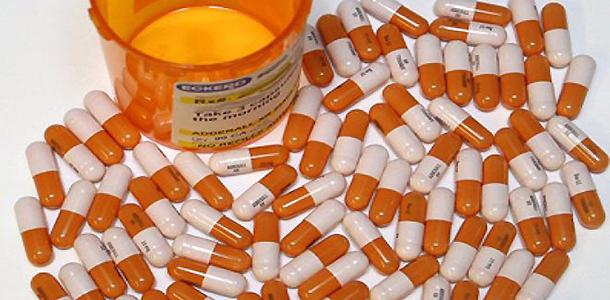What’s the P(Rx)oblem?
May 29, 2013
Throughout the course of the semester, many college students across the state of California are faced with the question of whether or not to use the pharmaceutical drug Adderall as a study aid in times of exams and high workloads.
Prescribed to treat attention deficit hyperactivity disorder, or ADHD, Adderall is a prescribed pharmaceutical drug containing amphetamine salts, allowing the user to focus intently for an extended period of time. However, some students attempt to acquire the drug illegally through friends, family or Facebook and use it to stay up late completing coursework or studying for an exam the next day.
“In the last month I’ve seen about three students [during appointments] who have admitted to it [un-prescribed use],” said Michelle Barkely, the head nurse at Cosumnes River College. “But coming here towards finals week, I’m going to see a lot more.”
However, the non-prescribed use of ADHD medications is not just confined to periods around mid-terms and finals; it is also the cause of many on-campus medical emergencies.
“I’m going into some classrooms because students have been hyperventilating, have passed out, or are having a major anxiety attack,” Barkley said. “Out of 100 cases, I would probably say about 70 percent [are Adderall related].”
This rough percentage correlates with results from the 2010 National Survey on Drug Use and Health which found that “nonmedical use of prescription drugs among youths and young adults in 2010 was the second most prevalent illicit drug use category, with marijuana being the first.”
The increasing presence of ADHD medications on college campuses is part of a growing trend that can be seen nationwide. Since 1991 the number of amphetamine-based prescriptions has risen to over 15 million, according to the 2011 Research Report Series on prescription drugs from the National Institute on Drug Abuse.
“I don’t think we should really be giving anybody who has anything amphetamines for an extended period of time,” said James Symes, a professor of chemistry at CRC.
Acknowledged as useful for certain medical conditions, it is warned that “when not administered properly, amphetamine can cause serious problems” due to the similarity between amphetamine and methamphetamine, widely known as crystal meth, according to a fact sheet from the website Methamphetamine Treatment.
This is partly a reason why both chemicals fall under the category of stimulants or ‘speed’.
“While amphetamine and methamphetamine are quite similar in many ways, having basically the same effects, it is worth noting that methamphetamine breaks down into amphetamine when it is metabolized,” according to the fact sheet.
Though somewhat different in their chemical make-up, both drugs can prove to be highly addictive and dangerous.
The presence of amphetamines in the body keep dopamine, a natural chemical and neurotransmitter which controls feelings of pleasure and reward, in the system longer. This is often why consumers of amphetamine-based drugs have a difficult time stopping their use, Symes said.
Unfortunately, possible addiction is only one of the negative side-effects of extended use of ADHD medications.
“Whatever heightened affects you had with concentration, it wears on your body. Your kidneys have to filter it, your liver has to detoxify the medication, and there are different heart diseases you can develop,” said Barkley. “It’s a long list.”
A 20-year-old television production major, Drahcir Ballesteros, is aware of the use of Adderall as a “study aid”, but would not use the drug himself.
“I wouldn’t say that it’s definitely bad,” he said. “But it’s something that they [CRC students] should be aware of. It’s definitely something that is dangerous.”
However, for some students, the benefits of these prescription medications outweigh the negative side-effects.
Having taken it a couple of times in high school, Jared Grubb, a 20-year-old undeclared major at CRC, is aware of what the drug is capable of.
“I took it because it made me feel good, I guess,” he said. “It made me do good [in school]. It made me concentrate, but I wouldn’t take it at night because I couldn’t fall asleep.”
Just in time for finals, Grubb has pondered using it again and said that it should be relatively easy to acquire over Facebook.
“I’ve thought about it,” said Grubb. “Actually, because of my final I’m thinking about taking it.”
Another student at CRC, Devin France, a 24-year-old anthropology major, is diagnosed with ADHD has been prescribed Adderall for “a few years now,” but finds himself on the fence about the drug’s benefits.
“I’ve kind of been going back and forth on it,” said France. “I mean, it does make me do my homework and stay up later, but sometimes it makes me a little too jittery.”
France himself acknowledges the alternative uses of the medication and admitted to using the amphetamine-based drug when needed for finals and essays. He’s also heard of the popularity of the drug on other campuses.
“My cousin goes to Sacramento State University and she tells me that a lot of people over there take it and want it,” he said. “It’s like gold over there. But here, really, I don’t know anyone who wants it.”
As an alternative to using the drug for finals week, Ballesteros suggests a simpler approach.
“Just try to get as much rest as possible. Don’t stress too much about these classes. I mean, at the end of the day it’s going to be over and you just need to pull through,” he said. “It’s kind of like a storm, and eventually the storm will pass.”






